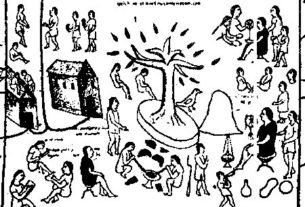A Woman’s Perspective on Living in Mexico
Let’s start at the beginning. The five most commonly asked questions before I came to Mexico were:
- Why not stay in California and retire?
- Won’t you miss your friends and family?
- Will you be safe? What if there’s a medical emergency?
- What are you going to do with all your things?
- What will you do with all that time? Can you continue to work?
Why not stay in California and retire?
This question was posed most frequently by those who really didn’t want me to go. Here were my two answers.
The first was that I couldn’t afford to retire in California in the life style to which I had become accustomed. Using spreadsheets, it became apparent that even by moving into a cheaper house, getting a less expensive car, and generally cutting down on expenses; I would still need at least $4,500 pre-tax dollars per month to live. Remember, this was in Santa Cruz County — the most expensive county to live in based on average income vs. average cost of living. I was nearly eight years away from tapping into my IRA moneys, and it would be yet another three years until Social Security kicked in. My investment income wasn’t nearly enough to support me at that level for that long.
I could, however, live nicely on $1200 per month in Mexico with a maid and gardener. That amount was within my budget. Most single people down here live on $650 to $1500 per month. The average falls within the $200-$1200 range. (I’ll talk more about cost of living and developing a spreadsheet in a future column).
The second reason was less pragmatic and more intuitive. All my friends would still be working. As it was, they had little time or energy left over for socializing. My other option for social life would be the retired folks who were too old for me and too retired. Okay, I generalize; but I wasn’t ready for the old folks home. I knew that people who chose to live in another country would possess a certain amount of moxie. They would be risk takers and embrace change. They would welcome the differences and actively “live” their life. Don’t ask me how I knew, but I did. And, I was right.
Folks down here have the time, the resources and the commitment to be active, involved and interesting people. There is a real sense of community and newcomers are welcomed with open arms. It’s easy to find friends who share your interests and you have the time to invest in making those life-long friendships. In addition to diverse social activities, mother nature and the local culture provide many opportunities for artists, writers and those seeking spiritual growth.
Won’t you miss your friends and family?
Yes, of course. And I missed them when I moved to Washington, to Idaho and to Germany as part of my career. I made new friends, too. And now, with the Internet, it’s possible to communicate daily with everyone I care about. And I have the time to keep in touch.
When you live in a beautiful country with one of the world’s best climates (according to National Geographic), your friends and family will visit you often. The international airport is just 30 minutes away. Most of my friends down here plan one or two trips back to the States (or Canada) annually, and welcome many visitors during the year. There’s a great deal to do down here for your guests and it’s much easier to have visitors when you have a maid!
Will you be safe? What if there’s a medical emergency?
Safe? I can walk alone at night anywhere and feel safe. Yes, I lock my doors at night — unless I’m too tired to let the dogs out and then I leave one open for them! Children play on the streets at night. They feel safe. I spoke to a beautiful young black woman who has seven children. She and her husband (an electrician) moved here after living in four different cities within the U.S. She says it’s the first time she has been able to let her children out of her sight and not worry about their safety.
Mexico is a poor country and there are thefts. Leaving valuables displayed inside cars is not a good idea. Leaving keys in ignitions and leaving purses unguarded is not smart. Isn’t this true just about everywhere? There are gated, guarded communities here. I don’t live in one. I have neighbors who look after each other, and we pay for a neighborhood police patrol as part of our neighborhood fees.
In terms of medical emergencies; some of the best doctors, dentists and hospitals are in the greater Guadalajara area. Many foreigners come down here because both drugs and operations are cheaper and medical care is excellent. Many kinds of insurance are available. I personally “flunked” the medical exam for the low-cost IMSS insurance because of high cholesterol. Shame on me. So, I continue to pay for private insurance which covers me in case of any major illness or injury. It also covers me for any emergency care required while I’m out of the country. Med-Evac programs are available for those who want to be treated in their own country. Organizations such as the Lake Chapala Society provide help with everything from blood pressure checks to eye tests to arranging for the return of remains to the family.
What are you going to do with all your things?
I’m one of those people who doesn’t place a great deal of value on “things”. I chose to sell or give away or donate most everything I owned. I brought with me about 1/3 of my clothes. There is no need for long johns and business suits down here! I also brought my grandfather clock (which came apart into three sections and could be packed in cartons), my photos, my computer and stereo equipment, personal items and my Christmas decorations — five boxes of them. I had 30 boxes in all. After much research, I found that flying them down air cargo was the cheapest, safest way to get them here — about $1,500.
My friend Roseann shipped everything she had ever owned — except for her 16-foot ladder and she regrets not bringing that! She’s arranged her house exactly as it was in California. It cost her $7,000. I wanted new things and figured that I could totally furnish my house for less than it would cost to bring down the truck full of my belongings. I decorate with the local Mexican furnishings and artifacts; but if you prefer, we have beautiful shopping malls, Wal-mart, CostCo, Sam’s and Office Depot. There’s really nothing you can’t buy down here except licorice twists and Mazda car parts! (More on bringing or buying cars in a future column).
What will you do with all that time? Can you continue to work?
My answer to this one was different before I came than it is today; and it will probably be different in the future. Since my job was one I could do from a “home office,” it was both possible and desirable for me to continue to work part-time as a consultant. As long as I was paid in dollars and that money went into a U.S. bank account, I would pay federal tax; but no state tax since I reside in Mexico. No Mexico taxes would be applicable. If, however, I wanted to work for a Mexican company, I would need to get a work permit. Those dollars would be taxed by Mexico and not the U.S. (Disclaimer: I am not a CPA or tax consultant and this is grossly oversimplified, but it met my information needs at the time).
I needed to have that sense of continuity as I transitioned from a career to retirement. However, when I got here, there was so much to do and everything took so long. I realized there just wasn’t enough time left in my life for work! I started volunteering at the local orphanage and put in a few hours a week of bookkeeping to help out a start-up company. I’m also writing this column and have published a few other articles. I guess that means I’m now a writer.
Several friends have taken jobs in the real estate business down here. Some have since quit and others have continued. Their decision seems to be based on financial need and/or values concerning time, contribution, recognition and identity.
(Updated in May of 2009)


